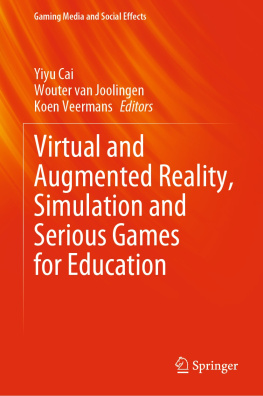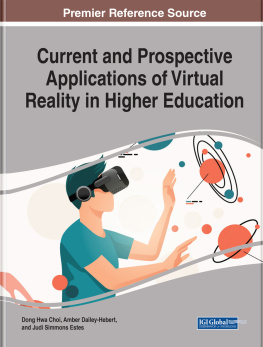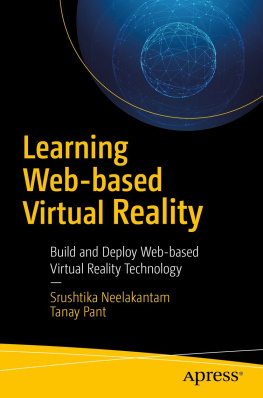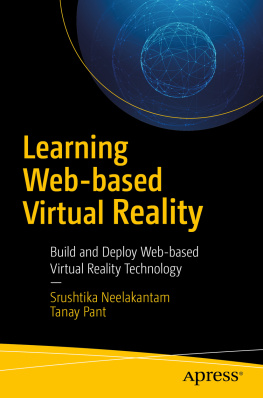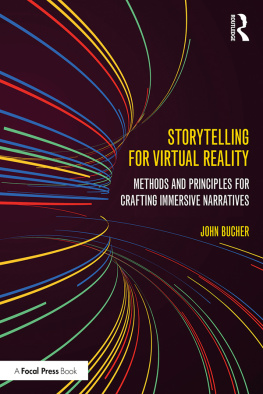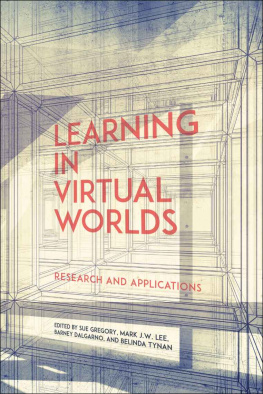VIRTUAL LEARNING
Virtual Learning
The impact of ICT on the way young people work and learn
JOHN P. CUTHELL
The University of Huddersfield, UK
First published 2002 by Ashgate Publishing
Reissued 2018 by Routledge
2 Park Square, Milton Park, Abingdon, Oxon, OX 14 4RN
711 Third Avenue, New York, NY 10017
Routledge is an imprint of the Taylor & Francis Group, an informa business
Copyright John P. Cuthell 2002
All rights reserved. No part of this book may be reprinted or reproduced or utilised in any form or by any electronic, mechanical, or other means, now known or hereafter invented, including photocopying and recording, or in any information storage or retrieval system, without permission in writing from the publishers.
Notice:
Product or corporate names may be trademarks or registered trademarks, and are used only for identification and explanation without intent to infringe.
Publishers Note
The publisher has gone to great lengths to ensure the quality of this reprint but points out that some imperfections in the original copies may be apparent.
Disclaimer
The publisher has made every effort to trace copyright holders and welcomes correspondence from those they have been unable to contact.
A Library of Congress record exists under LC control number: 2001089777
ISBN 13: 978-1-138-70401-5 (hbk)
ISBN 13: 978-1-315-20290-7 (ebk)
Contents
List of Figures
List of Tables
For almost twenty years successive governments have realised the importance of computers and computing and made significant investment in schools. The latest initiative, the National Grid for Learning, seeks to place online learning facilities at the heart of the curriculum for both teachers and students, and use it as a vehicle for Life Long Learning. School communities students, their parents and their teachers have struggled to manage technological change when resources, particularly those of time, have been stretched by the curricular and administrative changes they have had to implement.
The impact of ICT in the classroom transforms management, organisation and conventional pedagogical approaches. Many teachers still struggle with the demands of ICT in the classroom: the ICT training programme provided by the New Opportunities Fund (NOF) aims to provide the skills and theoretical framework within which educational praxis can absorb these changes. ICT is seen as an integral part of each strand of the National Curriculum, and the performance of teachers is to be judged on their ability to integrate ICT within their teaching and their students learning.
From the mid 1990s, however, a significant number of students have gained access to a personal computer at home. The ways in which they have learned to use the machines, and the uses to which they are put, are shaped more by personal experience and input from their peers than by their schools. The programs they use, the ways in which they learn and the work they create mean that the education system struggles to meet the demands and expectations of these young people. What follows, of course, is that those who do not have this technology at home are doubly disadvantaged if their schools and teachers cannot compensate.
During this period these issues have been investigated by the author, and this book is based on several years research into patterns of computer ownership and use among young people. A six-year longitudinal study of some 1800 students at a comprehensive school in West Yorkshire provided the data from which the results were drawn. Student work was examined during this period, and students themselves commented on the ways in which computers had changed their work. Teacher use and teacher attitudes were also examined. The results clearly demonstrate the disparity between student computer ownership and use and that of their teachers.
The ways in which those people with computers learn how to use them have shaped their assumptions and expectations of what it is to learn. They are less likely to accept conventional pedagogical approaches as appropriate to them. The patterns of learning experienced by young people are at variance with the assumptions and expectations of their teachers, with profound implications for the education system.
When the investigation began, much then-current research focused on curriculum and institutional uses of ICT. Underwood and Underwood (1990) examined the whole-school use of ICT, Watson (1993) examined the impact of ICT on childrens achievements and Wood (1998) evaluated Independent Learning Systems (ILS). Paperts work on LOGO has focused on cognitive gains from the use of that program. Turkle (1995) studied the impact of online communities and computer use among post-adolescent students.
What was missing from the literature was a study that examined the effects of home computer use among young people, and the ways in which this impacted on the education system. This study shows how the learning patterns of young people are now often shaped by the ways in which they use a range of technological tools: games machines and mobile phones, but particularly computers. The expectations about learning and work which these young people bring to their classrooms are in conflict with those of the school and their teachers. The learning patterns and learning gains need to be understood if they are to be capitalised upon by the education system. Without that understanding the efforts of schools, and the talents of students, may well be undermined. The citizens of the twenty first century are being taught in classrooms of the twentieth century whose praxis is shaped by the 1870 Education Act.
Computers present students with powerful tools for learning. Young people who use them have been set free from conventional expectations of learning. This raises profound issues for the educational system of the new century. This book examines and details these issues. To date, there has been little exploration of them. Teachers and schools may find an alternative to conventional curricular approaches to learning. Parents will gain an understanding of the learning processes that their childrens computer use supports. Young people who read it may recognise what they are doing, and learn how to apply the insights.
Background
As the use of a new technology changes human practices, our ways of speaking about that technology change our language and our understanding. This new way of speaking in turn creates changes in the world we construct.
(Winograd and Flores, 1988, p.6.)
From 1984 to 1986 I worked in Dammam for the Saudi Arabian Language Institutes, and purchased an IBM-compatible computer for the office. Within a week the Palestinian secretary had compiled a database of all the clients, set up a spreadsheet to track income and expenditure, and was enthusiastically using a word-processor to generate correspondence. He taught himself, with the help of phone calls to friends and the occasional use of the manual. Six months later the routine operations of the office had been transformed, and Ibrahim, the secretary, was able to make suggestions as to the ways in which the administration of the Institute could be changed. The technology had empowered him. When I looked at other companies with which I came in contact I found, to a greater or lesser degree, the same process.




